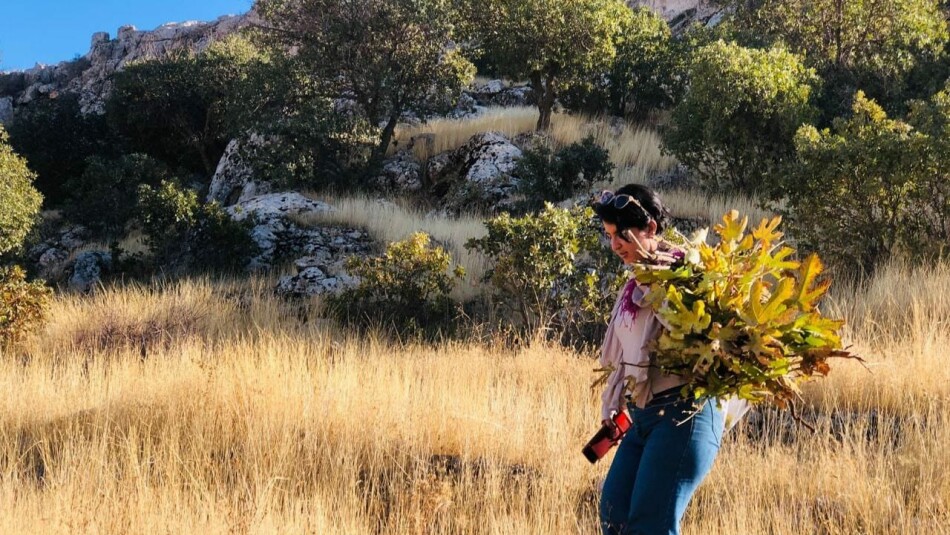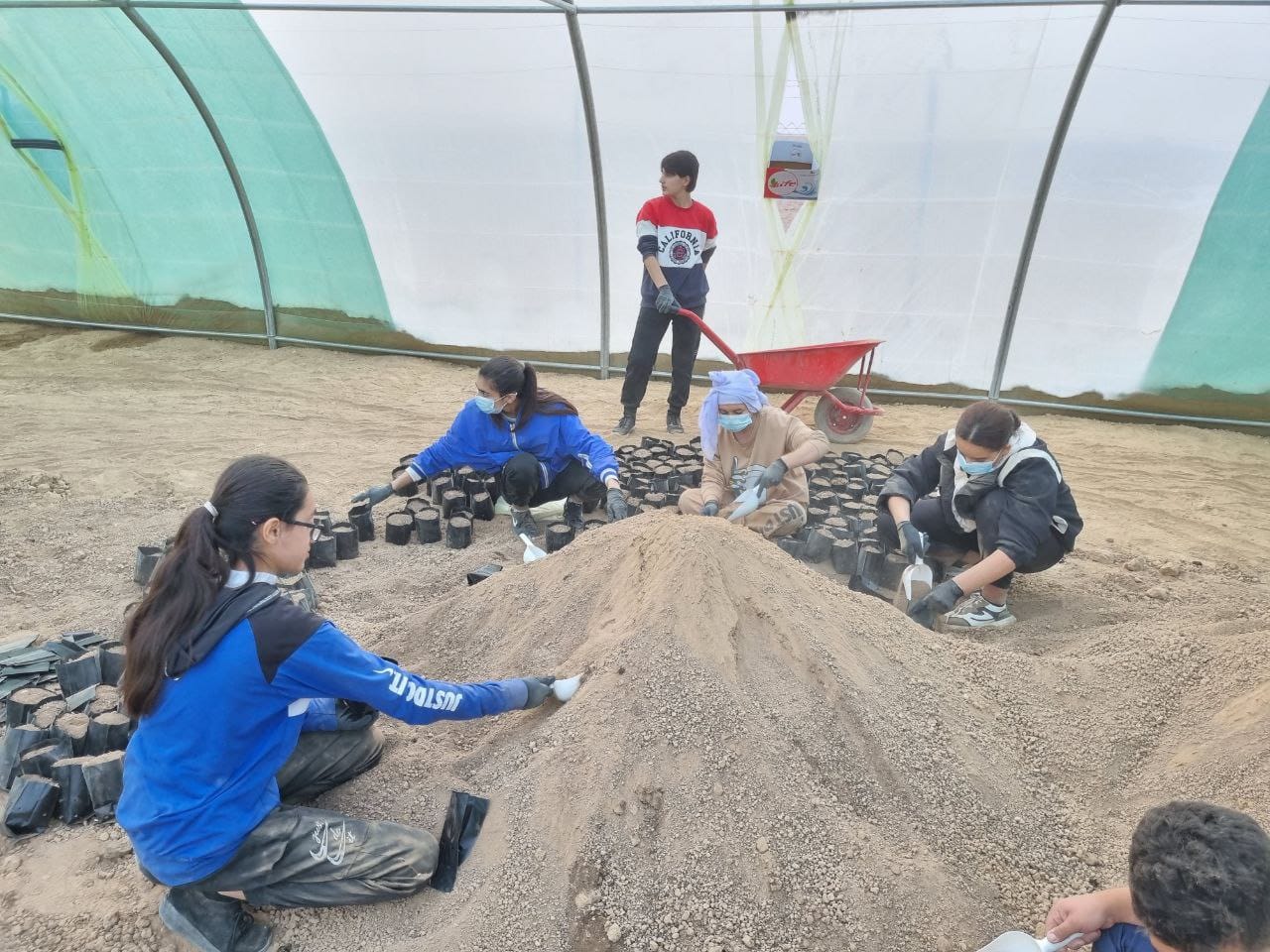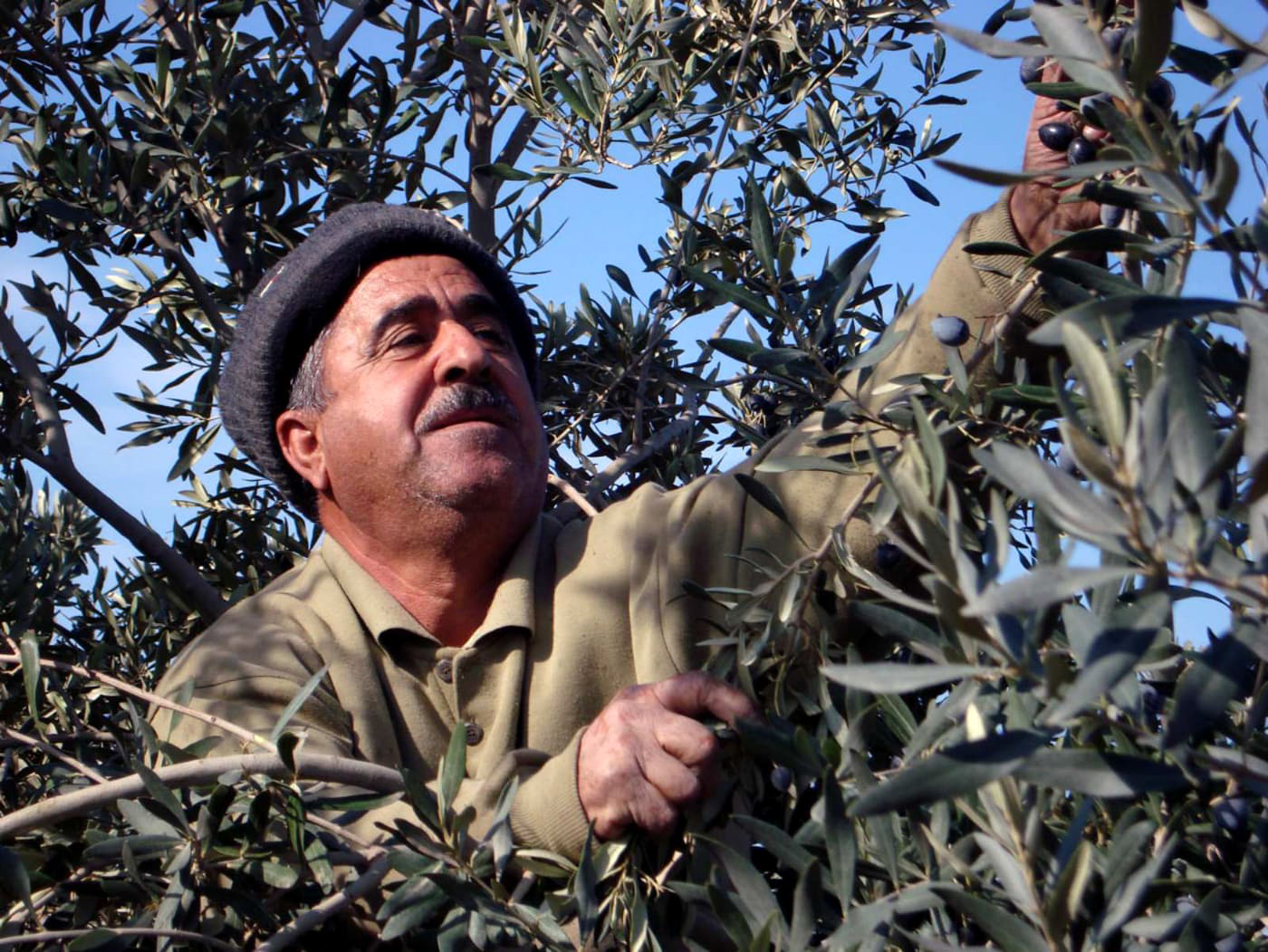
In Sinjar, home for the Ezidi non-Muslim community in Nineveh, a number of young volunteers, mostly girls, want to revive the dead fruits of figs and olives, the two precious trees that due to war and security instability, are completely close to destruction.
At least 50 young people are working with hope as part of a long-term project to plant one million trees in Sinjar, Nineveh province, to replace the destruction of thousands of trees in the district. This project is being implemented by the House of Coexistence in Sinjar.
"The first phase of the project has been planted for a month and is to plant 25,000 trees," said Mirza Dinayi, director of the coexistence house in Sinjar. The campaign initially includes planting cuttings and seedlings for both fig and olive trees in the garden of the coexistence house and serving them until they are ready for re-cultivation by the farmers.
The goal, according to Dinai, is to grow more figs and olives and become an important source of livelihood for the people of the region, many of whom have spent their lives in displacement in the past decade and are gradually returning to their areas.
"We want to continue to plant one million trees and compensate for the destruction of destroyed trees," he added.
The House of Coexistence, a non-governmental cultural and social center founded and funded by Dinnayi was opened in July 2022.
Dinnayi born in Shingal in 1973, son of chieftain for Dinnayi tribe family, is known as the director and co-founder of the Luftbrücke Irak (Air Bridge Iraq), a non-governmental organization NGO which helped over 150 Ezidi victims of the Iraq war, rescued women and children from the ISIS-controlled territories and transferred them to Germany, where they received medical care.
In October 2019, he received the Aurora Award for Awakening Humanity. As the laureate, he could choose 3 organizations to share the $1 million prize. Dinnayi picked Air Bridge Iraq, SEED Foundation and the Shai Fund.

According to unofficial statistics from the planting department in Sinjar, about 4,000 fig trees have dried up this year alone.
There are usually at least 50 volunteers working on the project, five to six of whom work from 9 am to 5 pm daily.
“They go to Mount Sinjar and its surroundings and bring back cuttings of fig and olive trees and then plant them in the garden of the coexistence house until they become trees,” said Rana Balo, the supervisor of the young volunteers.
Mount Sinjar and its surroundings are famous for their figs and olive trees. The youth have been trained on how to plant and make tree cuttings and saplings, scientifically. In total, 8,000 cuttings were cultivated into saplings in a month, 7,000 of which are figs.
“The project will continue until we reach one million trees... We want to support and assist farmers to resurrect the fig and olive trees in Sinjar... Sinjar is very famous for growing and producing figs and olives. We don’t wamt to lose these precious trees we want to pass it on to our generations,” Balo added.
The project will continue until we reach one million trees
According to the statistics of the Sinjar Agriculture Office, there are 50,000 trees in the district. In addition to tens of thousands of other trees destroyed by the fighting between the Islamic State of Iraq and the Levant (ISIL) and Iraqi forces.
Faiza Omar, 22, a volunteer of the One Million Tree Planting Initiative in Sinjar, said, “as soon as I learned that Dr. Mirza had this idea, I contacted him without hesitation.”
Faiza is involved in collecting the cuttings and then planting them.

The olives produced in Nineveh are one of the best varieties of olives in Iraq, especially for oil and it can withstand seven years in saline water. The figs are mostly sold in the markets of Mosul and Duhok.
Agriculture officials in the region believe that fighting and lack of service to the trees during this period has reduced fig production by half.
"The idea of the coexistence house is very good because many farmers are waiting for help and support to rebuild their farms and orchards, but we could not implement it because we did not have financial support," said Barakat Isa, director of the planting department for the sub-district of Sinuny.
“Sinjar is in dire need of such projects,” Barakat said.
According to the statistics of each of the Agriculture Division in Shingal and Sinuny, there are 50,000 fig trees in Shingal district, most of which are 40,000 located within the boundaries of Sinuni district, but these statistics do not include all orchards, because agriculture officials say that there is a large number that has not been registered yet.
Shingal is home to more than 40,000 hectares of agricultural land and most of that area relies on rainwater, while the amount of rainfall in Iraq has decreased significantly for the last two years as water scarcity has become a challenge for several countries due to climate change.
Farmers are thrilled as they await to receive fig and olive saplings for free.
Ayad Sulaiman Jundu, who owns an orchard in the Karse area of Sinjar, also sees the project as a “very good” step. He had 110 fig trees but now only 60 left and is waiting to plant another 100 once he receives support.
"The distribution of fig and olive trees is very important for Sinjar district, but we also need more assistance to develop the horticulture sector, in terms of monitoring, guidance and irrigation.”
Dinnayi called on any party interested in the project to help them make it a success.
According to the project, they will assist gardeners in tree care, irrigation and guidance. “The importance of planting one million trees is how you take care of them,” Dinayi said.